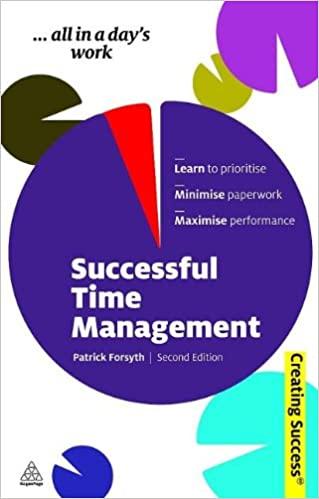Question
Case Description The city of Saltadilla, located in an urban municipality in Mexico, is facing a serious problem with the waste generated by the population.
Case Description
The city of Saltadilla, located in an urban municipality in Mexico, is facing a serious problem with the waste generated by the population. The new mayor is worried because he believes that the population's consumption patterns will lead to the saturation of the landfill current, so it intends to propose to the council a new management center waste, which would be sought to go beyond a sanitary landfill. From a preliminary investigation, the following important information is known for the design: Of the total waste in a home, it is known that on average each inhabitant throws away 0.2 each day. Kgms. of organic garbage and 0.7 kgms. of inorganic garbage that will be slow to decompose. However, preliminary research shows that consumer culture could cause that slowly decomposing garbage per capita grows 5% each year. This city has 50,000 inhabitants, according to the last census, but it is experiencing a lot of growth: 6% annually net. It is desired that garbage can be separated into two categories: fast-moving garbage decomposition derived from organic waste, such as garden leaves, and garbage that takes a long time to decompose, like plastics. Currently the garbage is collected and taken to the waste management center where it is a separation process due to the time it takes for garbage to decompose according to its type. Once separated, the garbage is buried, and it is known from studies that Organic waste takes two years to assimilate once confined. On the other hand, the garbage Slow decomposition takes 10 years to decompose. Assimilation means that this garbage is no longer physically in the landfill (it has been compacted and permeated into the soil) so frees up space for new garbage to accumulate. It is known that, given the saturation of the current landfill, the new one will begin with approximately five tons of slowly decomposing garbage and seven quickly decomposing garbage in areas differentiated (waste separation). Within the plans that are in place, the designers have thought about using fast-moving garbage decomposition to generate compost from year 10 after the plant comes into operation. garbage collector. Said compost is the residue that remains from the garbage when it is assimilated, that is, buried so that it decomposes naturally. Of each ton of garbage assimilated, 25% is converted into compost, and it is expected that said compost will be delivered to each of the inhabitants for your garden. It is also expected to use the garbage of both types that is being assimilated to generate energy. It is known that of all this garbage, only 35% can be used and for each ton In assimilation, enough energy is generated to meet a day's energy needs in a home. The designers have determined that this could happen from the 15th year of Get into operation. The city council wants, before starting the work, to identify critical aspects that They will be essential for the design and planning, which will have sustainability as a premise, first of all. Its mission is to help you with strategic information using the Dynamics of Systems. Considerations and Limitations This is a hypothetical case, so the value of the modeling exercise lies in the understanding and approach of the situation to be modeled, which will be materialized in a model simulation that will allow visualizing the future behavior of the generation and management of waste in the city.
Make a simulation model with Vensim software
Step by Step Solution
There are 3 Steps involved in it
Step: 1

Get Instant Access to Expert-Tailored Solutions
See step-by-step solutions with expert insights and AI powered tools for academic success
Step: 2

Step: 3

Ace Your Homework with AI
Get the answers you need in no time with our AI-driven, step-by-step assistance
Get Started


